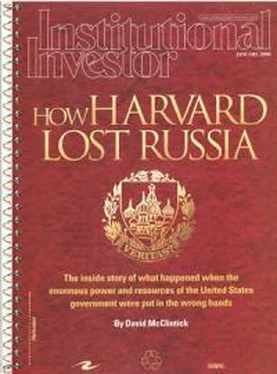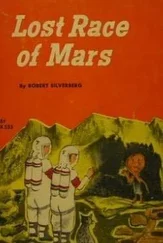Otherwise on the proliferation front, Russian and American interests were aligned. The two nations were quick to agree to the George H.W. Bush administration’s “Megatons to Megawatts” proposal, announced in August 1992, in which over 20 years Russia would convert 500 tons of highly enriched uranium from dismantled nuclear warheads into low- enriched uranium to be purchased by the U.S. to fuel power plants. The agreement was finalized under President Clinton in 1993, and everybody was happy. The Russians were earning money from their nuclear expertise while reducing their overlarge nuclear arsenal (as were the Americans), and the Americans had a reliable supply of energy-grade uranium for their nuclear-power industry.
However, the following six years proved revelatory. Putin summed them up well just recently: “We gave you uranium; you repaid us by bombing Belgrade.” What exactly did Putin mean? What was he summarizing?
In the oil and gas business, distribution is key. Whoever controls the pipe servicing a field controls the product.
By securing an energy supply corridor from the fields of the Caspian Sea region to Europe, the West would provide for a significant supply of oil and gas to Central and Western Europe by pipeline, and to the U.S. through load-out terminals in the NATO sphere, in Turkey, Greece, and Albania. The only trick would be to “maintain stability” along the pipeline from the Caspian through the Caucasus and the Balkans to Western Europe; the chosen solution was to create individual U.N.-NATO protectorates from the six republics and two autonomous regions that made up Yugoslavia before 1989. NATO’s “peace bombs” served to undermine the last sovereign state that stood in the way of the West’s colonization of the Balkans.
None of this was lost on the Russians. They understood that there was nothing “humanitarian” in NATO’s Kosovo aggression, and the alliance’s cheap rhetoric was really cover for the West’s ongoing oil-grab and the rolling expansions of NATO, both of which continue to this day.
Moscow had always controlled the pipes that carried the former Soviet Union’s oil and gas to Western markets. Much better, the Americans reasoned, that the Central Asian republics should owe their future wealth, transit payments, and security to an imperial Washington.
Stripped of her pipeline monopoly, her nuclear capacity diminished through obsolescence, her defense sector in decline from lack of resources, and burdened with a corrupt government, unsustainable foreign-debt payments, and a thieving elite, Russia would be no more than a vast, disorganized, ineffective, and landlocked territory capable only of delivering raw materials (and thousands of thermonuclear warheads) to the West. And even the efficient exporting of raw materials, certain interests argued, would require Western management.
Over the following decade the fracking revolution would change the face of the oil and gas industry; now the United States, for example, was to become an exporter of oil, not merely an importer. But the pressure on Russia did not cease: It has only intensified. The West’s sanctions regime compels Russia to live through a 21st-century version of the medieval siege.
In 2009, it was Sergey Kiriyenko who first saw the saving opportunity. The West, which had focused on gaining control of Russian gas and oil, had neglected uranium. The former Yeltsin prime minister saw that profitable assets which were even then giving a good return could be had for a cheap price. He also knew that when the Megatons to Megawatts program ended in 2013, the U.S. would have insufficient uranium to supply her industry. Kiriyenko’s proposal thus would give Russia a significant claim on U.S. uranium assets. But that was not likely the driving force behind the plan. What was essential for the development of Rosatom was increasing Russia’s supply of raw uranium, not settling old scores.
This article was first published on January 17, 2018.
5 reasons Ukraine will soon cease to exist
Published on February 14, 2017
http://theduran.com/5-reasons-ukraine-will-cease-exist/
With no historic basis as a state, an economy in tatters and political crises at every corner, it won’t be long till Ukraine becomes unrecognisable, if it exists at all.
As the fascist forces escalate their aggression against the Donbass Republics, many are questioning what the future of the Republic of Ukraine will look like in the medium and long term. The state as presently compromised will not survive but a few more years at the very most.
History is full of states coming and going/changing their borders. The idea that this state will evaporate into the annals of history is not novel. It will be one of many.
Here’s why.
1. There is no historical precedent for such a state
The majority of the territory that is currently Ukraine has at various times been ruled by Russia, The Golden Horde (Mongolia), The Polish-Lithuanian Commonwealth, Ottoman Turkey, the Austro-Hungarian Empire, Second Polish Republic and the Soviet Union.
The regions corresponding to post-1991 Ukraine had never been unified as a legitimate state. This is one of the reasons that current state has no cohesive identity, it is merely a mishmash of regions that for most of modern history were Russian. This poor political geography is owed in great part to the foolish Bolshevik map of Soviet Republics which replaced the Tsarist guberniyas, which as regional units, were far more reflective of the realities of local identities.
Because of Russia’s vastness, throughout history, regional identities have often been vastly more important than nation ones.
It is for this reason that many people in the cobbled together, geographically manic Republic of Ukraine, are far more comfortable calling themselves Odessa people, or Kharkov people or even Lvov people than Ukrainian.
The myth of Ukrainianism is a modern invention of an intelligentsia from the Galician region which during the 19 thand early 20 thcentury was part of the Austrian/Austro-Hungarian Empire and after the First World War, part of the Second Polish Republic. The development of the idea of Ukrainianism was an attempt to emancipate peasants who were neither Polish nor Austria and give them an identity during the ‘age of European nationalism’.
This was the basis of the rump-state that emerged from the ashes of both the First World War and the Russian Civil War known as the West Ukrainian People’s Republic. Another Ukrainian People’s Republic later formed in Kiev. Both places had limited international recognition and are best understood as an outgrowth of the territorial and sectarian wars fought in the region after the October Revolution.
Such conflicts include the Polish-Ukrainian War and the Polish–Soviet War, when both powers were competing for influence in the area known as Little Russia.
A state with such shaky foundations is difficult to unite. No such unity has yet to be achieved as the political infighting in Kiev, the coup of 2014 and the war in Donbass demonstrate.

Massacre in Odessa
2. Since 1991 Ukraine has always been divided
Ever since the former Soviet Republic became an independent state, Ukraine’s political map has always been evenly divided between eastern and southern regions which vote for parties that are broadly pluralistic and at times Russophone. Such a party was the Party of Regions from which Viktor Yanukovych derived his support.
Western regions, including those which were only incorporated into the USSR after 1945, always tended to vote for parties that were Russophobic and intended to build a young state on a sectarian basis, in spite of the lack of historical precedence.
Читать дальше







![Джонатан Димблби - Barbarossa - How Hitler Lost the War [calibre]](/books/385421/dzhonatan-dimblbi-barbarossa-how-hitler-lost-the-w-thumb.webp)





